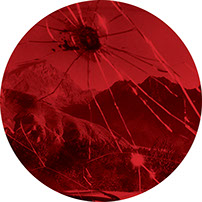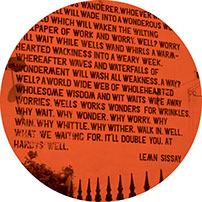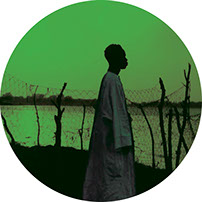N O T E S F R O M T H E S O U T H
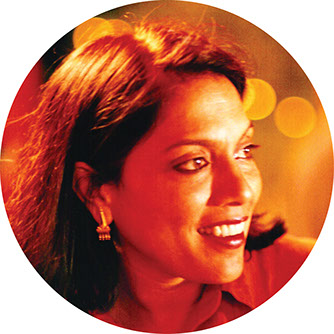 Monsoon Dreams
Monsoon Dreams
Director Mira Nair’s film Monsoon Wedding won the main prize at 2001’s Venice Film Festival. Currently shooting in New York, she spoke to Peter Machen during a brief break in her busy schedule
Mira Nair, is one of contemporary global cinema’s most dearly regarded talents. Her debut feature film, Salaam Bombay, was a sprawling view of Bombay seen through the eyes of a street child, the greyness of poverty, infused with the sparkle of childhood reality. It reaped prizes at festivals everywhere, even garnering an acknowledgement from Hollywood with an Oscar nomination for Best Foreign Picture .
Nair didn’t get the Oscar, but cracked Hollywood anyway with The Perez Family, Mississippi Masala and the controversial Karma Sutra, all minor hits that made enough of a splash at the box office to keep the studios happy. And this year she won the Golden Lion at the Venice Film Festival for her colourful and tender portrayal of an Indian middle-class wedding during monsoon season.
I spoke to her about Bollywood and Hollywood, and also about Durban, where she lived for a year, and probably the place on the planet where those two movie-making Meccas collide most intimately.
Peter Machen: What led you to live in Durban?
Mira Nair: My husband is an academic and he was teaching at the University of Durban-Westville in 1993 for six months. He was a visiting professor, and I was being a good wife. And I had been fairly obsessed with South Africa way before - the whole struggle period and the literature and politics that accompanied it. So it was a great opportunity for me to be actually living there.
PM: And how did you find it?
MN: It was a very interesting and dramatic time. It was the year that Chris Hani was assassinated. I actually made a 10-minute fiction film about that experience, which has hardly been shown – I showed it privately a couple of times in South Africa – called The Day the Mercedes became a Hat. It’s a fictional documentary about what happened in Durban and South Africa on the day of the Hani funeral.
PM: Were you working on any feature films while you were living in South Africa?
MN: No, I wasn’t making any features. I was writing one which was based in India, but which did not become Monsoon Wedding. I did make a feature – but not in South Africa, in America – called My Own Country, which I edited in the office in my house in Cape Town (where Nair lived for two years, again following in the wake of her husband’s academic career).
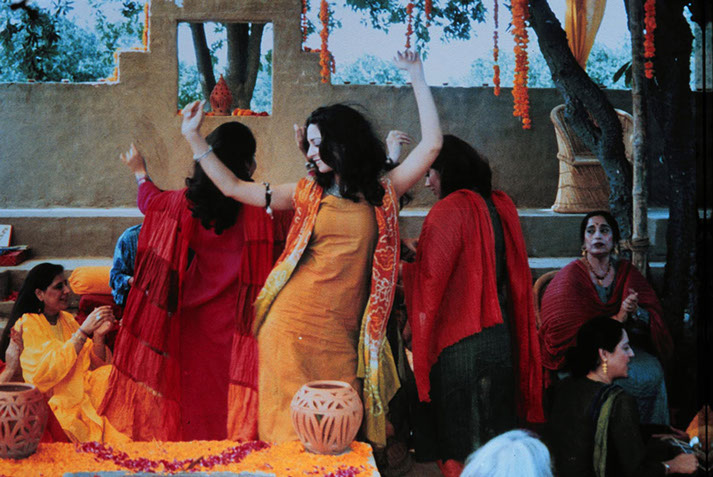
PM: How do you place yourself in relation to Bollywood?
MN: Now?
PM: Now, and while you were making Monsoon Wedding.
MN: You know, Bollywood is an inextricable part of our culture. It’s like eating and breathing. When I was growing up, I loved Bollywood classic films, like the films of Guru Dutt and Raj Kapoor. Those are the films that I have been inspired by in some way – not so much the Raj Kapoor films as the Guru Dutt films. You know who he is?
PM: No...
MN: Guru Dutt is an unusual director, sort of like Orson Welles in a way. He worked in the Bollywood mainstream yet made highly artistic pictures. They never were successful in his lifetime – he committed suicide at the age of 39 – but are deemed as classics now. Anyway, those were the films I used to love to see. But, I otherwise had a bit of snobbery about the high kitsch of Bollywood, as I looked at it, when I was growing up in the ’60s and ’70s.
But now Bollywood has changed enormously, and has become really slick and hip and very much part of the cultural fabric of any class of Indian life. In Monsoon Wedding, which is about a middle-class family much like my own, Bollywood has entered the fabric of a wedding.
So a young babe in my family would definitely imitate a Bollywood movie star on one of the nights to entertain us. That would be normal. That would not be absurd. In my young days that would never have been thought of. So definitely it has entered part of our life. Besides just going as entertainment, it’s accepted in family ceremonies.
I revel in that now. It’s a load of fun. Monsoon Wedding is a bit of a Bollywood movie – on my terms – in a way. Because I can’t be a Bollywood director in that style. I mean, I can, I guess, if I put my mind to it, but...Everybody’s begging me to do it. And I might just do it. But only as long as they’re willing to do it on my terms.
PM: What does Bollywood think of you? Are they fond of you?
MN: Well, now I’m a lioness of India they say (a reference to Nair winning a Golden Lion), now the president of India calls me up, now I’m in the good books. Two years ago I wasn’t. It comes and it goes.
PM: And when you made Salaam Bombay?
MN: Then I was first in the good books. Now I’m back.
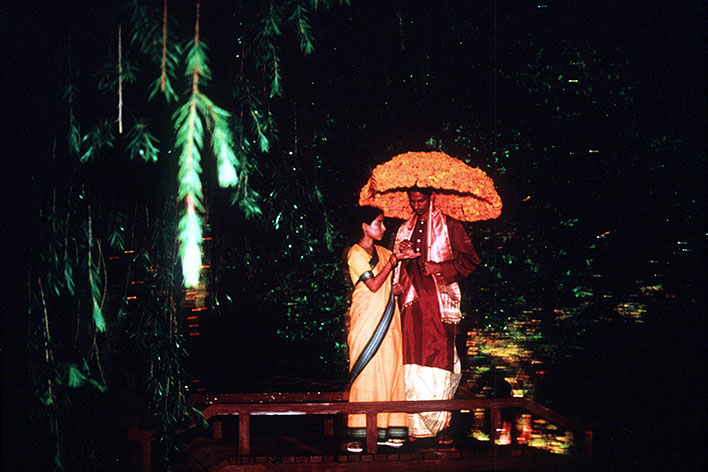
PM: Was it the making of Karma Sutra that caused your fall from favour?
MN: Yes, it was basically Karma Sutra. You know, the sex and controversy and censorship – and the battle that I
sort of won and sort of lost and sort of won.
PM: In the few years since Karma Sutra, do you think that India has kind of loosened up?
MN: Oh, yes. I think so. I think so.
PM: Because Monsoon Wedding is quite salacious. It’s quite sexual in parts.
MN: It’s unbelievably sort of...almost amoral. I shouldn’t say that to the press, I don’t mean it that way. But it’s, like, free. On a certain level, what’s going down in Delhi society or Bombay urban life, it almost startles me, it shocks me. But, you know Sabrina, my writer, she is much more in touch with the young. And she brought that aspect, she opened my eyes to what’s really going on – she and my niece and nephew (who are also in the film). They’re the ones who are telling me, "This is exactly what it’s like". There is a lot of sexuality in the young.
Like the daughter having a lover and then rebounding on a marriage and all that. That we knew – but there is a level to which young men and women are, in strict terms, getting out of hand! And it is really amazing because it goes hand in hand with an absolute love of ritual and tradition and what the family want from you and all that.
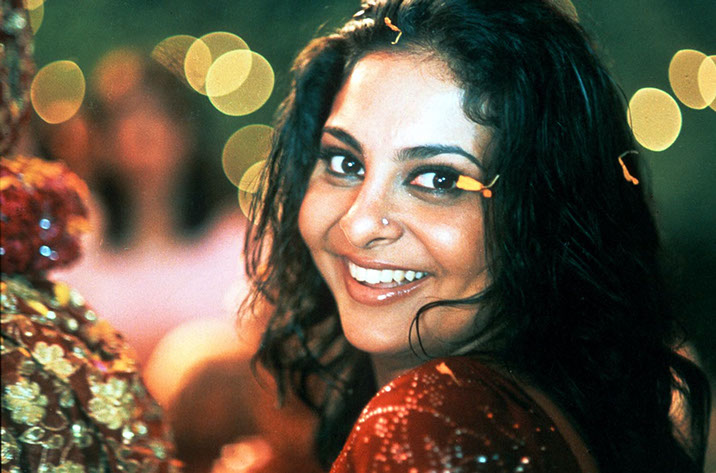
PM: Okay. From Bollywood to Hollywood: One of the things that really impresses me about you is that you manage to go there without being appropriated.
MN: Yes.
PM: Well, how did you do that? I mean I think of Lee Tamahori (who made the New Zealand box-office smash hit Once Were Warriors and then disappeared into diametrically opposed Hollywood action flicks).
MN: Well, I guess that I’m a fiercely independent spirit, or something. I have a healthy disrespect for authority (she laughs zealously). I can’t bear it actually. I’m very open and very collaborative, so long as I’m the boss. That’s very bad. But as long as I have control, really, I mean that. Because I do take the best ideas – I’m totally humble about that and I’m totally ruthless also, not sentimental at all, not territorial.
But the point is that I have to retain independence because there is a type of instinct that informs my work. Yet everybody can offer me ideas and take me much further than what I know. And that is the intention of working with such brilliant people, like Declan Quinn, the cinematographer, or Sabrina Dhawan, the writer, or Mychael Danna with music. You know I work very well with people. They’re great people and they really contribute and make the film richer and richer. And that’s the idea.
But I have to kind of take them on a journey, take them with me and, if I don’t always know where I’m going, I have to find out where I’m going. But what I have to rely on, that distinguishes me from anybody else, is my instinct. And I think the idea in life is to keep one’s mind and heart empty and open, and to respond to that instinct.
So if I have to work with a lot of people who tell me how things have to be, it interferes with that - although sometimes it helps. Anyway, I’m not anti-Hollywood at all. It’s just that I’ve had a couple of iffy experiences there and I’m just happier, even with the struggle of it, to do my own work.
In Hollywood, a lot depends on who you get to work with - and there are fantastic people there too. I just haven’t had the good fortune of working with them yet (laughs). I’ve just finished something that has been a pleasure to do – an American film with Uma Thurman, Juliette Lewis and Gena Rowlands called Hysterical Blindness, which I’m just mixing this month. It has been a hectic year between Monsoon Wedding and this movie.
So I’m definitely open right now. But I’m also happy to be able to constantly have the elasticity within me to do my work. Because – you know what it is like from living in Durban – if we don’t tell our stories, then nobody else is going to.
And you have to do it in a way that is inimitable, your own way. And yet do it with the style and standard that satisfies a global audience. So that they can see that the craft of film-making is alive and well in India.
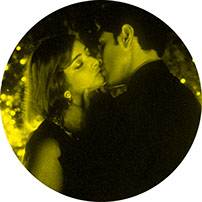
More
Film
© 2017 Peter Machen. All rights reserved About Contact Peter Machen Web design: The Communication Factory
